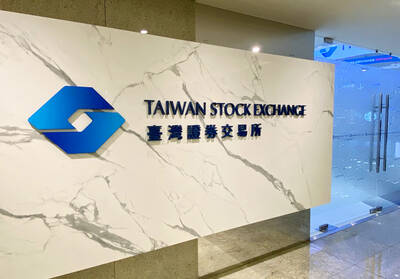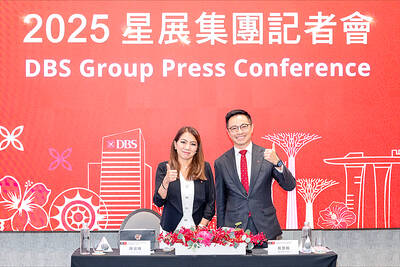CNOOC Ltd, a Chinese offshore oil and gas company, said Friday that it had reached a preliminary agreement to buy a stake in a group of Australian gas fields for US$320 million, and that it had stepped up output of Indonesian oil, two further signs of China's rapid expansion in East Asia's energy markets.
But CNOOC also announced Friday that its profits had fallen to 3.62 billion yuan (US$437 million) in the first half, down 21.6 percent from the comparable period last year. The company nearly tripled its spending on exploration for new oil and gas fields in the period, part of a stepped-up push by Chinese enterprises to find more supplies of energy.
At the same time, lower international oil prices cut into the company's sales, which were little changed despite extra production from the Indonesian oil and gas fields it bought in January for US$585 million.
CNOOC had predicted that it would take a stake in Australia's Northwest Shelf gas fields when its controlling shareholder, the state-owned China National Offshore Oil Co, concluded an agreement on Aug. 8 to buy US$11 billion to US$13 billion worth of liquefied natural gas from the fields over the next 25 years. The gas is to be delivered over a port being built in Shenzhen, adjacent to Hong Kong, which will use one-third of the gas; the rest will go to other areas of the surrounding province, Guangdong.
CNOOC said some details of Friday's deal were still to be worked out with the six energy companies that now own the Australian fields, including Royal Dutch/Shell, BP, ChevronTexaco and BHP Billiton along with two smaller companies. The 5 percent stake CNOOC will acquire will come in equal portions from the existing partners' holdings.
Energy companies are ordinarily reluctant to sell stakes in oil and gas operations once those operations go into production, as the Australian fields have. But the Chinese authorities required that CNOOC be allowed to buy a stake, in part to let the company gain experience with offshore production of liquefied natural gas.
Erwin Sanft, an energy analyst with CLSA, said that CNOOC appeared to be getting its stake at a 20 percent discount to the market value of Australian gas reserves.

Taiwan Semiconductor Manufacturing Co (TSMC, 台積電) secured a record 70.2 percent share of the global foundry business in the second quarter, up from 67.6 percent the previous quarter, and continued widening its lead over second-placed Samsung Electronics Co, TrendForce Corp (集邦科技) said on Monday. TSMC posted US$30.24 billion in sales in the April-to-June period, up 18.5 percent from the previous quarter, driven by major smartphone customers entering their ramp-up cycle and robust demand for artificial intelligence chips, laptops and PCs, which boosted wafer shipments and average selling prices, TrendForce said in a report. Samsung’s sales also grew in the second quarter, up

LIMITED IMPACT: Investor confidence was likely sustained by its relatively small exposure to the Chinese market, as only less advanced chips are made in Nanjing Taiwan Semiconductor Manufacturing Co (TSMC, 台積電) saw its stock price close steady yesterday in a sign that the loss of the validated end user (VEU) status for its Nanjing, China, fab should have a mild impact on the world’s biggest contract chipmaker financially and technologically. Media reports about the waiver loss sent TSMC down 1.29 percent during the early trading session yesterday, but the stock soon regained strength and ended at NT$1,160, unchanged from Tuesday. Investors’ confidence in TSMC was likely built on its relatively small exposure to the Chinese market, as Chinese customers contributed about 9 percent to TSMC’s revenue last

Taiwan and Japan will kick off a series of cross border listings of exchange-traded funds (ETFs) this month, a milestone for the internationalization of the local ETF market, the Taiwan Stock Exchange (TWSE) said Wednesday. In a statement, the TWSE said the cross border ETF listings between Taiwan and Japan are expected to boost the local capital market’s visibility internationally and serve as a key for Taiwan becoming an asset management hub in the region. An ETF, a pooled investment security that is traded like an individual stock, can be tracked from the price of a single stock to a large and

Despite global geopolitical uncertainties and macroeconomic volatility, DBS Bank Taiwan (星展台灣) yesterday reported that its first-half revenue rose 10 percent year-on-year to a record NT$16.5 billion (US$537.8 million), while net profit surged 65 percent to an unprecedented NT$4.4 billion. The nation’s largest foreign bank made the announcement on the second anniversary of its integration with Citibank Taiwan Ltd’s (花旗台灣) consumer banking business. “Taiwan is a key market for DBS. Over the years, we have consistently demonstrated our commitment to deepening our presence in Taiwan, not only via continued investment to support franchise growth, but also through a series of bolt-on acquisitions,” DBS